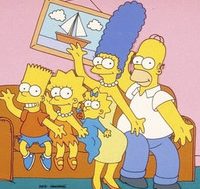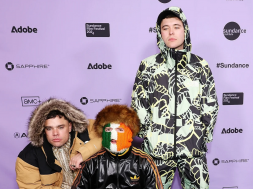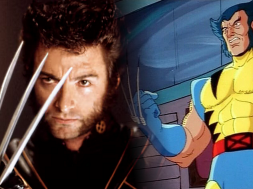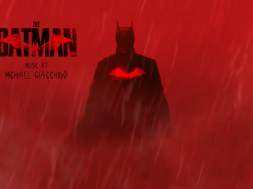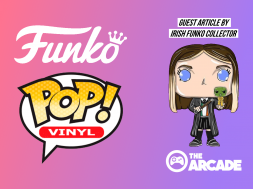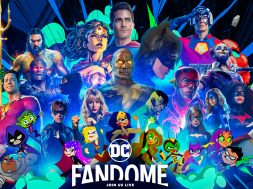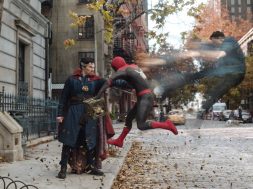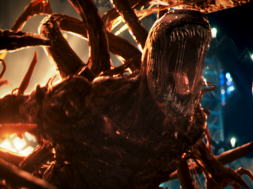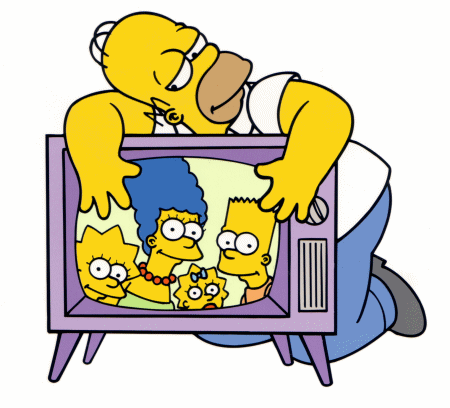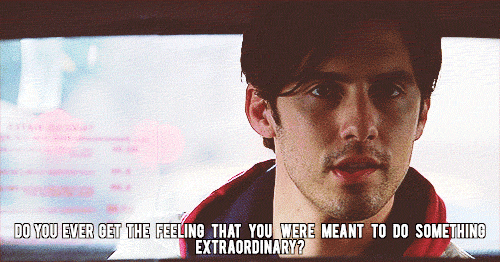
There are very few things that are truly magical. A perfect meal. A sassy put-down. Die Hard. Going six fights undefeated in multiplayer on Mortal Kombat II. And sunrises and true love and our continued existence in this universe and junk like that.
But there’s no disputing that one of the most magical things there is – I’m talking a double-10 on the Gandalf Scale – is watching that one season of a television show that is truly, unequivocally, unimpeachably perfect. That confluence of elements on and off-screen that creates a piece of art so defined, and so definite, as to unite disparate groups together in awe of just how well these pieces of art have ignited the very passions within us that drive us to absorb them in the first place.
Everyone has a perfect season for each of their favourite shows that they can most likely name, and will doubtless be able to describe individual episodes from. Even those that don’t class themselves as geeks will be able to explain in depth the soap storyline that held them glued to the screen like no other. The perfect seasons I’m talking about are the ones that go beyond personal preference, however, to the point that the dogs in the street know that it’s that special kind of good that gets you through boring work days thinking about being home in time to watch it, even if it’s recorded on series link or on Netflix or (shh!) questionable download.
It’s a high award, but one that’s difficult to attain, and is achieved only by a very few. Sometimes, a show’s first season reaches those magical heights, becoming a hit-maker that propels the tale to further seasons. Heroes’ first season is a fine example; coming out not long after the first wave of Spider-Man movies had made such huge money, it carried an engaging, charming cast of characters, a thrilling, mind-bending plot, and mixed glossy SFX with equally glossy drama. As well as riding the crest of a rising wave of popularity for the superpower set, the show ticked boxes to attract viewers of all kinds, and was a major step towards the resurgence of the superhero TV genre (along with the likes of Smallville) that’s brought us such varied titles as Alphas, MisFits, Arrow, Agents Of S.H.I.E.L.D. and the mooted Gotham and Daredevil series that are coming down the track.
More commonly, a show will enter its magical period a season or two into its lifespan, as creators, writers, directors, actors and crew get a feel for the show, the characters, and the other nuts and bolts of how the world they’re creating works. The longer running the show, the more obvious this tends to be. Friends enjoyed a spectacularly good first few years thanks to having rigidly defined characters, a solid premise (everyone has friends, and they sometimes do funny things) and a penchant for drum-tight plotting, before losing its way in or around seasons 5-7, then somehow managing to turn some ridiculous relationship twists on their head by revelling in all their ridiculousness for laughs in its last few seasons. Will & Grace was competing with Ross, Rachel, Monica, Chandler, the other one and Joey for a while and, during its magic season, managed to out-funny Friends, if not out-perform commercially, finally figuring out how to make its concept gel into a joke machine.
)
A more recent example is Breaking Bad, and it’s also a slightly weirder one. Few who have watched will argue that Season 1 was anything but utterly engrossing, taut, tense and written to within an inch of its life to get the maximum out of a neat concept, juicy characters, a unique setting and some dynamic performances. But I fear I might be alone when I say that Season 2, while building and expanding on the core plot and introducing characters who would become near-legendary, wasn’t actually as good; the pace was gone from the show. The concept had settled and new ideas were sluggish in coming. Jesse’s new girlfriend was annoying. If you’re planning on stoning me, please email them to liam@the-arcade.ie.
But the lull gave way to what I think – bearing in mind I haven’t finished the entire series yet – is the quintessential season of Breaking Bad. The third season brought together all the elements that made season 1 so watchable, combined them with the positives from season 2 (Saul Goodman was so popular he’s getting his own show), and used the negatives from that season to drive and evolve the characters and relationships so that the unlikeable bits from before became a motivational smorgasbord the show’s creators could delve into, scooping out huge, gooey lumps of damn good television.
Truly, making these kinds of seasons is a lot like the above analogy. Finding the formula for magical television is something akin to alchemy, and keeping it there is something akin to doing alchemy whilst suspended by a bungee cord to the bottom of a plane with a drunk pilot. Two shows come to mind in terms of maintaining magical status and both concern themselves with dysfunctional families and their adventures. I’m talking of course, about The Sopranos and The Simpsons.
Critics all over the English-speaking world and beyond will espouse the merits of these two shows. The numbers tell you the story of just how successful both are and continue to be. But there’s a crucial difference between both programmes, aside from practical things like genre and style, that illustrate first the importance of magic seasons to a show and its viewers, then the thrill of extending that magic beyond one season, and finally, just how fragile that magic really is.
The Simpsons was a true phenomenon, going from a 30-second animated sting with dumb jokes to being one of the great unifiers of idiot-box watchers of all ages, races, creeds, and bubblegum flavours. If you didn’t watch it, or like it, you damn sure knew about it. In the commentary for Hot Fuzz, director Edgar Wright made a glib remark that pretty much every good idea someone has for a comedy moment has “already been done in The Simpsons.” And who could argue? Whether it be movie references like this:
MARGE: Aw come on, Homer. You liked Rashomon.
HOMER: That’s not the way I remember it.
the perfect timing of Homer’s slapstick stupidity or blink-and-you’ll-miss-’em puns (remember Mr. Glascock?) Matt Groening’s yellow-skinned comedy troupe became the benchmark for pretty much all successful comedy in the 20th Century.
On paper at least, The Sopranos couldn’t have been more different. Digging under the skin of gangsters and goodfellas to get at the humans beneath, the series’ deconstruction of alpha male Tony Soprano and his twisted, often bloody relationships was a tale told with grit intensity and relentlessness that put a third dimension onto a genre that was close to parody and made it some of the most compelling content in screen history, its enduring success and praise becoming the goal of damn near any drama that followed.
What these shows had in common was that they managed to start off great, reach that magical zone and maintain it. For about seven years, The Simpsons was nigh-on perfect, its tentative first series giving way to a roll that lasted all the way up till the end of Season 8, peaking with Season 5 and the quintessential Sideshow Bob episode, Cape Feare (rakes were never as funny before, and never will be again.). After a dynamite first season, The Sopranos went from strength to strength, growing with all the unstoppable hunger of Tony’s many voracious and destructive appetites. The show probably peaked around Season 4, with the introduction of the Furio character and his heartbreaking split between his loyalty to boss Tony and his love for Tony’s equally besotted spouse Carmela. This season managed to have audience members root for Tony to succeed, while still wanting Furio to shove him into the deadly spinning blades of a helicopter while urinating.
What makes the shows different – and illustrates the finite nature of magic television – is that while The Sopranos came to a (mostly) satisfactory end, The Simpsons carried on well past the point where it wore out its welcome.
Yes, a few seasons remained watchable thanks to an ever-decreasing supply of good jokes, but if anyone looking at Season 25 sees the show as anything other than a pale shadow of itself, impotently kow-towing to try and drag in the Family Guy and Adult Swim audiences instead of writing good jokes, then the kind of help they need is beyond the ken of this writer. It’s sad to see a programme, once the poster boy for the power of magic TV seasons, taint that image with season after season of aimless dullness that rides on the coattails of the better things it did. The Sopranos quit while it was still pretty much ahead, whatever you think of that ending. The Simpsons clings to past glories like a faded movie star (don’t even get me started on the Simpsons Movie!)
And that, quite possibly, is the only key ingredient that all shows must share to create those magic runs that stick in the memory; knowing when to wrap up the show before the glamour fades. With the way the TV industry works, changing writers, showrunners, crew et al, and with fads and trends in a constant state of flux, it’s the only solid rule. Get out at the right time, and nostalgia makes the good seem great – Breaking Bad will be remembered as never having had a bad season, and cancelled cult shows like Firefly will leave people wondering what might have been. Try to repeat the same trick when everyone’s already seen it, and you end up with the bad feeling that comes from anti-climax – see Heroes, House M.D., the Only Fools And Horses specials, Grey’s Anatomy and the CSI franchise – which can make all the hard work done to bring a show to life and create that magic seem like it was all for nought.
To quote a particularly famous participant in one of these wonderous TV moments – I don’t need to tell you it was Hank Scorpio – “There’s no trick to it, it’s just a simple trick.” Making a magical season happen is just that simple, and just that difficult.
